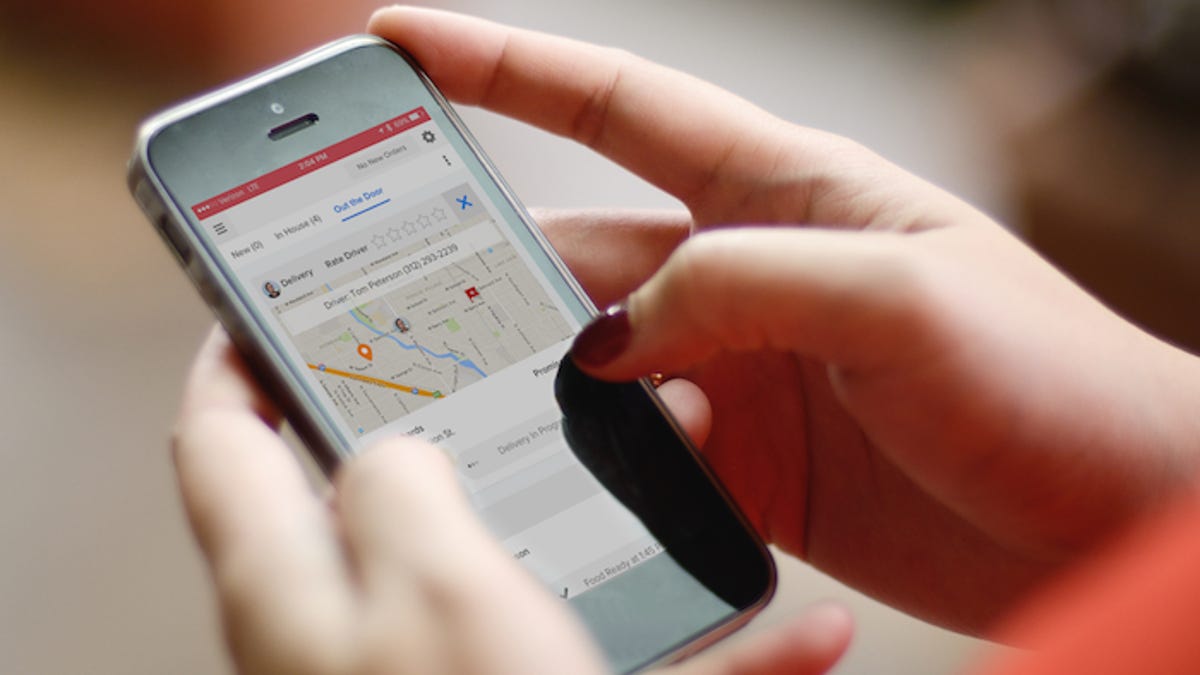What does the Grubhub trial mean for the gig economy?
A California lawsuit about employment status could spawn big changes for companies like Uber, Postmates and TaskRabbit.

Food delivery startup Grubhub and one of its former drivers are battling in court over worker classification.
A trial kicked off this week that could have a ripple effect throughout the on-demand economy.
Two former drivers for food delivery startup Grubhub filed a suit against the company in December 2015 for underpaid wages as a result of being classified independent contractors rather than employees. Now it's up to a judge to decide how they should've been classified.
US Magistrate Judge Jacqueline Scott Corley is presiding over the trial, which is taking place in California's US District Court for the Northern District. It's a bench trial, so there's no jury, and it's slated to run about two weeks.
The employee versus independent contractor debate has raged over the past few years as on-demand services have boomed. Ride-hailing companies Uber and Lyft have based their business models on contract labor, as have other on-demand services, such as TaskRabbit and Postmates. The people who work driving cars or doing deliveries for these companies are considered "gig workers" -- or contract employees.
Uber, Lyft, Grubhub and others say the independent contractor classification means a worker can be his own boss and set his own schedule. But it also means the companies aren't responsible for costs, including Social Security, health insurance, paid sick days and overtime.
The gig workers are expected to supply and maintain their own cars, and pay for gas, repairs and related expenses. When you throw in the uncertain future of the Affordable Care Act with its subsidized health insurance, things get even more complicated.
In the case of Grubhub, former driver Raef Lawson says that because he wasn't classified as an employee, he was paid less than minimum wage. After he doled out money for expenses, like gas, parking and phone data, he often made less than the legal minimum of $10.50 per hour in California, according to court filings. The other driver named in the suit, Andrew Tan, is no longer in the case.
This Grubhub suit is the first of these types of lawsuits to make it to trial in California. It was brought by labor lawyer Shannon Liss-Riordan, who famously sued Uber and Lyft under similar complaints.
"We are pleased to be presenting this case for trial and look forward to arguing to the court why GrubHub has misclassified our client as an independent contractor," Liss-Riordan said.
Grubhub says Lawson didn't appear to have a problem being a gig worker when he was driving for the company.
"Raef Lawson took full advantage of the freedom and flexibility that his partnership with Grubhub afforded him, by deciding when, where and how frequently he performed deliveries," said Sandra Glading, Grubhub's director of public relations. "Grubhub looks forward to presenting its case at trial and proving that Mr. Lawson was an independent contractor in business for himself, not an employee of Grubhub."
As for the class-action lawsuits against Uber and Lyft, the suit against Lyft settled in March with the ride-hailing company agreeing to pay $27 million to drivers as long as they remained independent contractors. In the suit against Uber, the ride-hailing company agreed to pay up to $100 million in April 2016, but in August 2016 the judge for the case rejected the offer saying it was unfair, inadequate and unreasonable for drivers.
If the companies were forced to classify their drivers as employees, they'd have to rework their business models, as well as manage a workforce of hundreds of thousands of drivers.
In the face of these battles, several on-demand companies have re-thought the independent contractor classification. The grocery-delivery startup Instacart switched hundreds of its personal shoppers from contract workers to part-time employees in 2015. And house-cleaning startup Homejoy announced it was permanently shutting down after being sued over the classification of its workers. Several similar lawsuits have also popped up against other on-demand companies, including Postmates, Handy, Shyp, DoorDash and Washio.
The outcome of the Grubhub suit will likely have an effect on the rest of the gig economy. If Judge Corley sides with Lawson, that could open up the space for other gig workers to bring more lawsuits. On the other hand, if the judge sides with Grubhub, it means on-demand companies could be somewhat sheltered from further suits.
Judge Corley denied Liss-Riordan's request for class-action status in the Grubhub lawsuit, which means the final judgement will pertain only to Lawson. But, given the type of claim the case is filed under, the judge could impose penalties against Grubhub for allegedly underpaying drivers across California.
Liss-Riordan has another lawsuit against Grubhub pending in federal court in Illinois, which has been conditionally certified as a federal Fair Labor Standards Act class-action suit. More than 7,000 Grubhub drivers from around the US have already opted into that case.
First published September 7, 4:42 p.m. PT.
Update, September 8 at 12:38 p.m.: Adds comment from Shannon Liss-Riordan and background information on the Grubhub lawsuit in Illinois.
Batteries Not Included: The CNET team shares experiences that remind us why tech stuff is cool.
CNET Magazine: Check out a sampling of the stories you'll find in CNET's newsstand edition.

